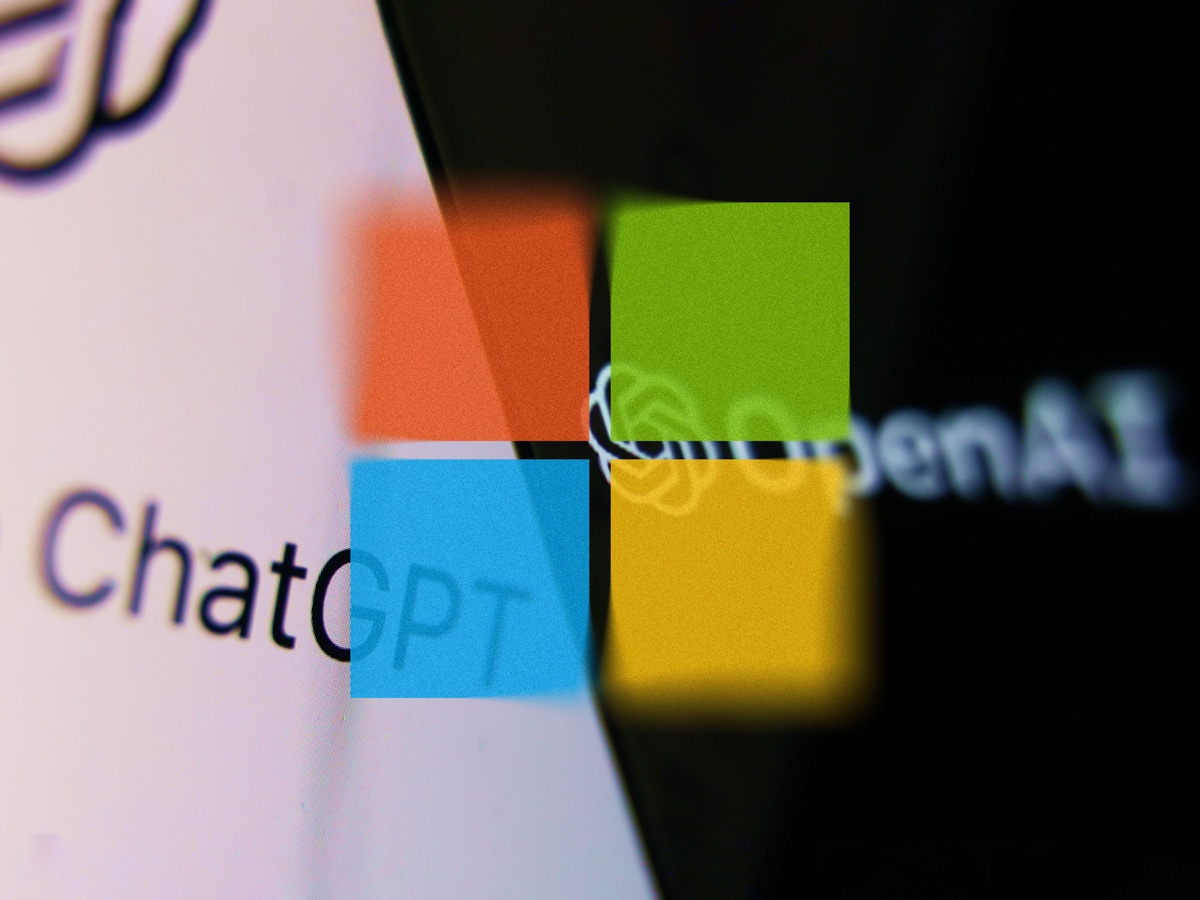Google views ChatGPT as a “code red” threat, and is developing similar technology of its own. Meanwhile, OpenAI CEO Sam Altman has warned that the technology is very early-stage and “incredibly limited”, and that it needs to be refined for accuracy before it can be implemented.
- Google views ChatGPT as a threat and has been developing similar capabilities
- Microsoft may integrate ChatGPT with Bing within the next several months
- The WisdomTree Artificial Intelligence UCITS ETF was up 2.7% in the last month
Software giant Microsoft [MSFT] is in talks to invest up to $10bn in OpenAI, the startup that invented the viral AI chatbot ChatGPT, Bloomberg reported on Wednesday, citing people familiar with the matter. The investment round, which other venture firms would also participate in, could value the startup at circa $29bn, making it the tenth-highest valued private company in the world.
Microsoft's proposed offer involves spreading the investment over a multi-year period, although the terms are yet to be finalised, according to Bloomberg.
The two companies have been mulling the deal for months, which was initially planned to close at the end of 2022, according to documents sent to investors.
Microsoft has previously pumped about $1bn in OpenAI.
Can Bing finally beat Google?
The AI’s close replication of human conversation has sparked a wildfire since its November launch, gaining a million online users within five days. The technology has spurred speculation over its potential to replace professional writers and even pose a threat to Google’s core business – its search function.
Microsoft hopes to integrate ChatGPT into its Bing search engine, which could give it the advantage over Alphabet’s [GOOGL] Google that it has always aspired to have. Some analysts and experts believe it could be a strong alternative to Google search, with its ability to summarise publicly available data effectively. Unlike the simple list of links that a Google search returns, the bot can respond to queries in a natural and human-like manner, even responding to follow-up questions.
The integration could be released within the next several months, a source told Bloomberg.
2022 was a year of big AI advancements. OpenAI’s Dall-E image-generating model, which translates written prompts into art and images, generated conversations about the potential for integrating AI into creative industries.
The potential Microsoft integration is garnering strong interest among investors and analysts, with Wedbush analyst Dan Ives calling the development a “potential game changer”.
ChatGPT’s limits and competitors
However, while off to a promising start, experts are wary of getting excited prematurely. ChatGPT’s success and the timing of its rollout hinges on the level of accuracy it can achieve, which is still not sufficiently reliable, and could run the risk of spreading misinformation.
OpenAI’s CEO Sam Altman himself said in a tweet two weeks after its release on 11 December that the technology is “incredibly limited, but good enough at some things to create a misleading impression of greatness”, adding that “it’s a mistake to be relying on it for anything important right now. [I]t’s a preview of progress; we have lots of work to do on robustness and truthfulness”.
Google, on the other hand, has been developing similar technology of its own in its Language Model for Dialogue Applications, or LaMDA, system. The company is wary of the reputational damage that could come from errors or mistakes for a company of its size, Google CEO Sundar Pichai and AI research chief Jeff Dean told Google employees regarding ChatGPT’s threat to the search giant, CNBC reported.
While Google developed the foundational technology of ChatGPT, the company’s senior management has labelled the situation a “code red” threat.
Funds in Focus: the First Trust Cloud Computing ETF
The First Trust Cloud Computing ETF [SKYY] offers exposure to the main players in the cloud computing space. As of 12 January, Microsoft is the fund’s sixth-largest holding with a weighting of 3.55%, while Alphabet Class A shares are the ninth-largest with a weighting of 3.42%. The fund is down 4% in the last month and down 37.3% over the last year.
The Global X Cloud Computing ETF [CLOU] includes a 2.03% holding of Microsoft shares, as of 12 January and 1.55% of Alphabet Class A shares. The fund is down 1.4% in the last month and down 29.6% in the last year.
The WisdomTree Artificial Intelligence UCITS ETF [WTAI.L] offers exposure to companies with a focus on AI. Microsoft is its 59th-largest holding at 0.36%, while Alphabet Class A shares are 64th at 0.33% of assets under management. The fund was up 8.1% in the last month and down 27.9% in the last year.
Despite being weighed down recently by concerns over cloud growth, Microsoft shares were up 6% in the last five days as news of the possible deal have come to light.
Continue reading for FREE
- Includes free newsletter updates, unsubscribe anytime. Privacy policy





